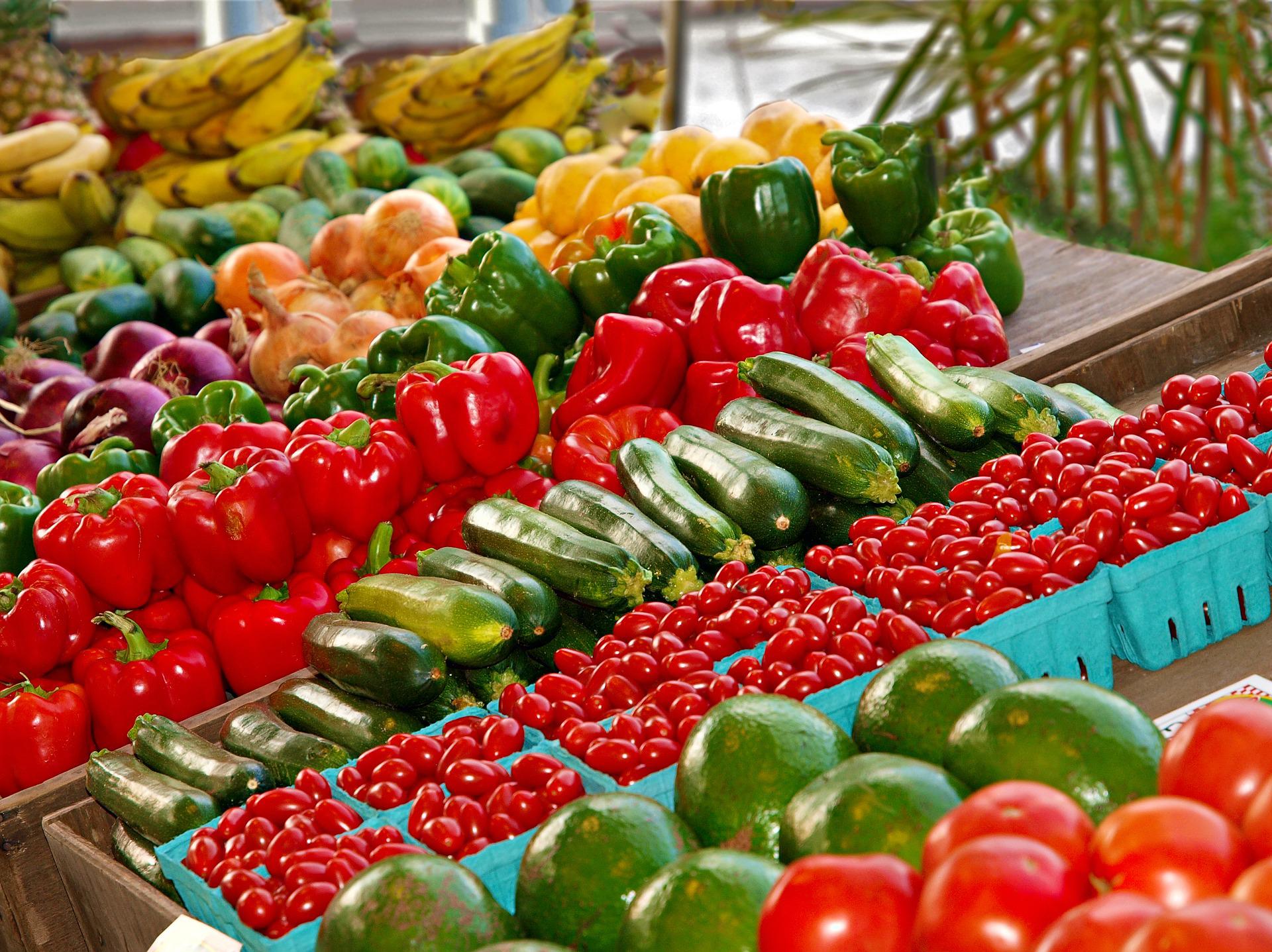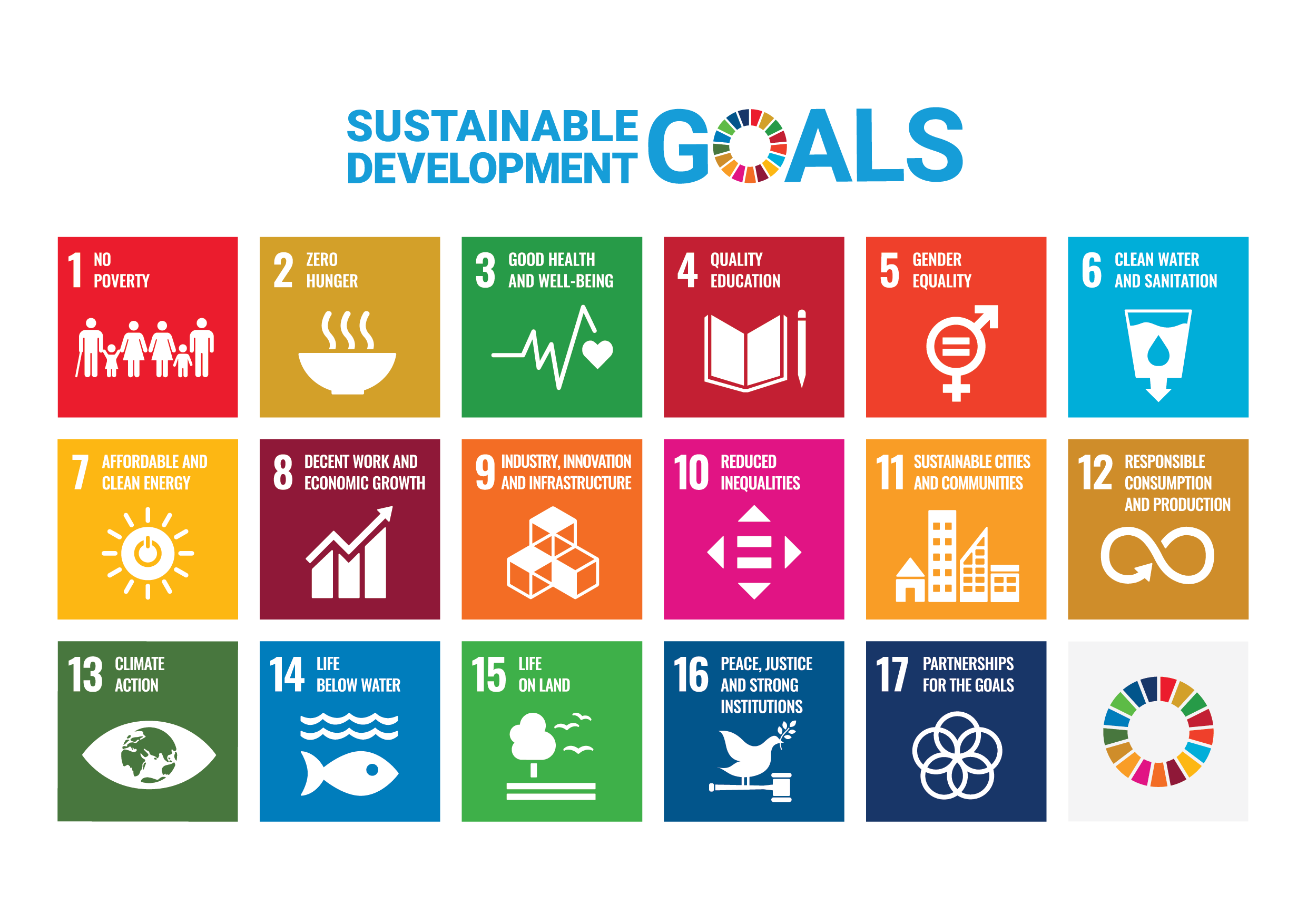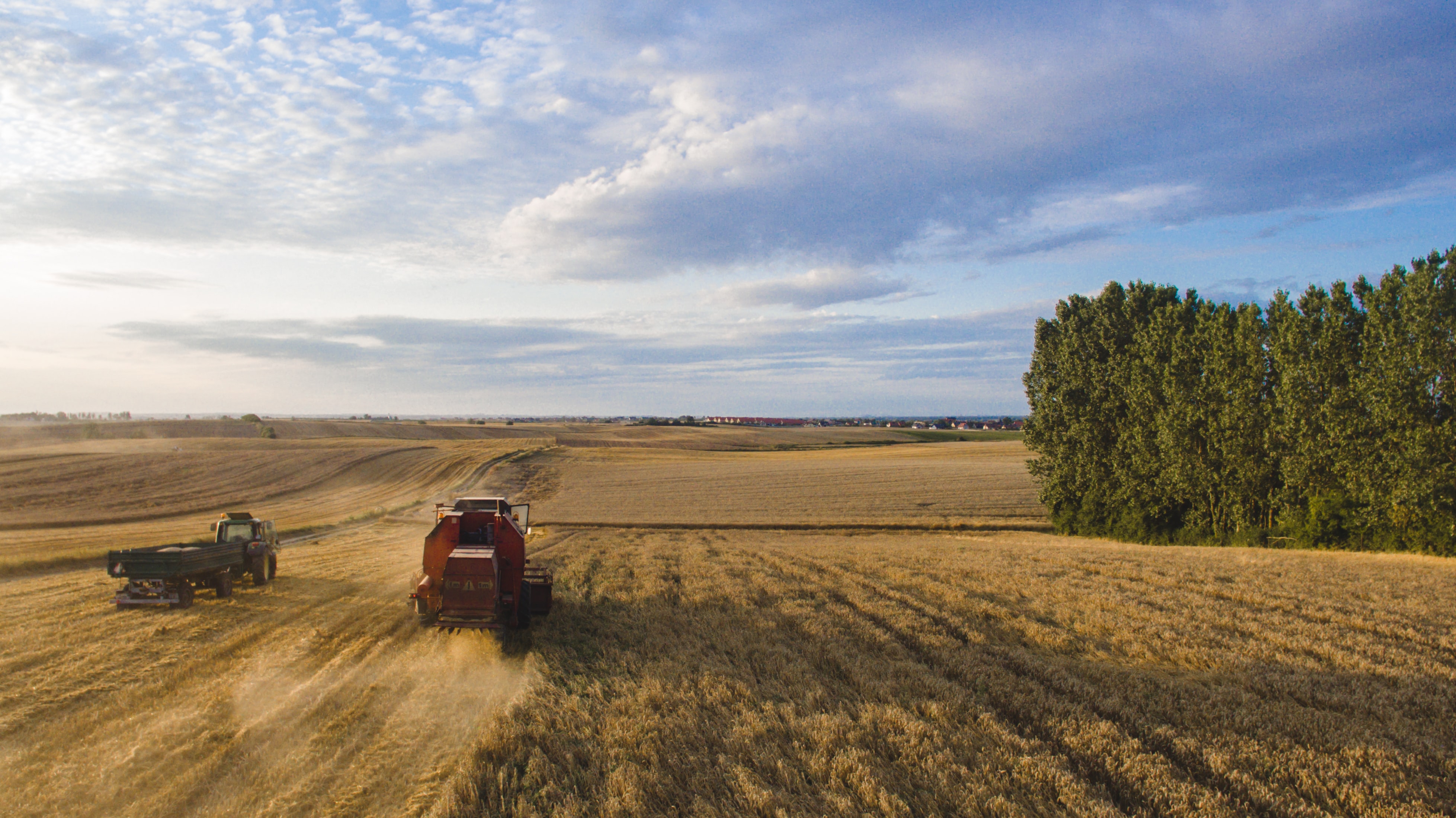Main navigation
More food sustainability: crucial for people and for the environment
Strawberries in winter and imported apples? You can find them in most supermarkets. This is not sustainable. Looking to the future, the way we eat needs to change in many mundane ways – and this needs to happen quickly so that future generations will also be able to enjoy a planet that is worth living on. In Baden-Württemberg, alternative nutrition concepts are being worked at pace. Many creative ideas and innovative products already exist here in Baden-Württemberg that can be adopted in everyday life.
When the keyword ‘sustainability’ comes up, food is not necessarily the first thing that comes to mind. Yet, nutrition accounts for more than a third of Germany's ecological footprint.1) Elsewhere in Europe, the picture is the same: for example, 28 percent of resource consumption and 17 percent of greenhouse gas emissions in Europe as a whole can be attributed to the European food industry.2) That said, there are few other areas to which each and every one of us can make an active contribution and do a lot more for sustainability: you don't have to be a producer – even as consumers we can reduce our individual ecological footprint, for example through our choice of food, packaging, resultant quantities of waste, consistent use of leftovers and even the way we go out and shop.
It’s not just about thinking of others. Sustainability in nutrition can also be a selfish act. Eating and drinking are basic needs, and ‘you are what you eat’ is more than just an old saying: the way we eat has been shown to make a significant contribution to both physical and mental health.3) The benefits for everyone are obvious, and we are also keenly aware of the current climate and environment issues: so what is being done to adapt our food as quickly as possible to respond to dwindling resources and climate change, and meet the needs of a growing world population, while still providing us with healthy and tasty food?
Food does not cause greenhouse gases – but its consumption does

First of all, it is important to look at the situation on different levels: foodstuffs do not, of course, directly cause greenhouse gases such as CO2 and methane nor do they accumulate pesticides and microplastics in the environment. But their production, storage, processing and transport to supermarkets as well as the disposal of leftovers do. This is especially true for animal-based foods and products that travel long distances, such as ‘flying fruit’. Or even foods that have to be produced or packaged in a very complex way – for example, products that consume a lot of water, have to be fertilised intensively, require elaborate weed control strategies or are very sensitive.
But it is not just ecological issues that need to be taken into account. Social well-being and cultural acceptance by consumers also play a key role. After all, what good is the most ecologically valuable food if it is not accepted and not produced under fair conditions or if it is unaffordable for the majority?
Sustainable nutrition therefore has many facets. The German government's Scientific Advisory Board on Agricultural Policy, Food and Consumer Health Protection recently defined four target dimensions of sustainable nutrition, called the ‘Big Four’: health, social, environmental and animal welfare. In particular, it made the following recommendations: eat fewer animal products and more fruit, vegetables, nuts and pulses – produced locally and/or organically and seasonally, if possible; it is also promoting the drinking of tap water. Food waste should be avoided and, if possible, food should be homemade and eaten with other people.4) For products that are not produced in the local area, such as coffee or cocoa, the purchasing decision should always favour social aspects. The Fairtrade mark, for example, ensures fair payment for local producers and ensures that no children have to work on plantations.
Second objective in the United Nations' Agenda for Sustainable Development

The fact that more sustainable nutrition is one of the most urgent goals of our time – and not just at the local level – is evident from its incorporation into the United Nations’ political aims: in 2015, as part of the 2030 Agenda for Sustainable Development, all members of the UN General Assembly agreed on 17 sustainability goals to be achieved by 2030.5) In second place in this treaty: ‘Zero hunger – end hunger, achieve food security and improved nutrition, and promote sustainable agriculture’.6)
There is not much time left to achieve such an ambitious goal. Whether the target will be reached in eight years' time remains an open question – especially against the backdrop of the coronavirus pandemic and the war in Ukraine. Nevertheless, the political path has been prepared at a global, European and domestic level. Initiatives include the Farm to Fork Strategy as part of the ‘European Green Deal’ which aims to achieve a ’fair, healthy and environmentally friendly food system’7), the German government's climate protection plan8), the National Programme for Sustainable Consumption (NPNK) and its further development 9),10) and the German Sustainability Strategy (DNS).11)
One of the focal points of innovation in Baden-Württemberg
Science and politics in Baden-Württemberg have also joined these efforts: the innovation project run by the Ministry of Food, Rural Areas and Consumer Protection, for example, promotes living laboratories for closing regional material cycles and for the sustainable supply of nutrients and proteins from the region.12) With the Baden-Württemberg Nutrition Strategy and the establishment of the State Centre for Nutrition as a contact for sustainable nutrition13) and many individual projects, including ‘Mach’s Mahl – die Offensive für gutes Essen (Make a meal – the campaign for good food) in Baden-Württemberg advocating the preparation of good homemade food from local products14) and the ‘Bio from Baden-Württemberg’ action plan15), food is one of Baden-Württemberg’s innovation priorities. Plenty of individual research projects at universities and development work in companies in Baden-Württemberg, and numerous start-ups have also set sustainable nutrition as their goal. These initiatives cover all areas from production and innovative foods to waste recycling.
Environmentally compatible food production is the first step

ROKO Farming from Ulm, Germany, for example, has developed a novel technology to produce fruit and vegetables all year round that can be adopted worldwide. Vertical farming is the name of the method, and it involves cultivating plants in superimposed layers, including indoors, thus freeing up areas that can be renatured.16) The Stuttgart start-up Farmee offers an app-based approach for customised urban farming that is available to all smartphone users.17 ) On a larger scale, research into an agricultural system that falls between conventional and organic is being conducted at the University of Hohenheim. Its aim is to produce high yields without chemical-synthetic pesticides and make it possible for all consumers to afford healthy food.18)
Besides the work being done on the more sustainable production of food, organisations in Baden-Württemberg are already developing a wide range of novel foods and food ingredients. At the Fraunhofer IGB in Stuttgart, for example, researchers are looking into the potential of microalgae as a raw material for the food and pharmaceutical industries.19) In Esslingen, the start-up ProteinDistillery is using brewer's yeast as a side stream from breweries to offer proteins as a vegan alternative to animal foods.20) And the University of Hohenheim, together with a company called Signature Products in Pforzheim, is developing regional superfoods from hemp: protein-based cannabis foods from environmentally friendly cultivation that come in many forms such as schnitzel or pasta.21) Larger companies are also increasingly thinking about how food can be produced more sustainably: the Swabian chocolate company Ritter Sport, for example, which upcycles cocoa by marketing lemonade made from the previously virtually unused pulp of the cocoa fruit.
Insects and pulses as valuable old and new sources of protein
Another major issue in the regional food industry is insects: as a valuable source of protein with an acceptable ecological footprint, they are seen as having a great future – especially with a view to feeding a growing world population with high-quality food. The Albstadt-based company Beneto, for example, has developed insect pasta from cricket meal and is currently in the process of setting up Germany's first fully automated cricket farm. The animals can be fed with residual materials – from bakeries or juicers, for example – and used 100 percent. The waste heat can also be used to run the farm, thus creating a climate-neutral circular economy.22) Similar approaches, although not yet quite as concrete, are being pursued using the Fraunhofer IGB’s and Hermetia Baruth’s23) insect biorefinery alongside other approaches being taken by companies such as Alphaprotein in Bruchsal24) and Cepri-Tech from Karlsruhe 25) , which are producing proteins as food and feed.
It’s not just insects that are seen as potential alternative sources of protein to counteract world hunger and dwindling resources. Legumes – pulses such as lentils, soybeans, peas, beans and lupins – are also expected to become a larger part of our diet in the future than they have been in the past. Moves towards growing these valuable crops again on the fields of Baden-Württemberg are underway. The LTZ Augustenberg is committed to doing so through its ‘Protein Initiative’ and ‘Rhizo-Linse’ projects.26)

Avoiding waste is something everyone can do
Another major focus is on making existing foods more sustainable – at all levels. The portfolio of start-up kernique from Göppingen, for example, includes a vegan organic nut snack that contains no sugar or palm oil, is produced and shipped in a climate-neutral way and is a Fairtrade product.27) Biberach University of Applied Sciences, together with the University of Ulm, is researching the possibility of producing precious vanillin from residual streams in the paper industry.28) Greenhouse gases generated during wine production are to be used by Novis GmbH from Tübingen to expoit algae biomass.29) And at the Albstadt-Sigmaringen University of Applied Sciences, work is being carried out on the multiple use of plants such as walnuts, apples and herbs, including for pharmaceuticals, pesticides and paper production.30)
No matter what you eat, waste is always produced. Keeping the quantity of waste as low as possible makes a significant contribution to reducing ecological footprints. It's not enough to eat a locally produced vegetarian diet – on the contrary: researchers at the University of Freiburg have shown that although a plant-based diet is in itself more climate-friendly, it generates more food waste.31) General strategies for waste recycling and avoidance are therefore needed, and there are already some very creative individual solutions: for example, Spoonies, the edible ice cream spoons from Spoontainable, or EATlery32), another edible cutlery made from renewable raw materials from Frenvi33), both companies from Heidelberg, and the wooden coffee capsules from the Waiblingen-based company rezemo.34) Another approach is being pursued by the Zero Bullshit Company from Stuttgart, which offers organic snacks made from residual materials from the food industry, including sustainable packaging.35)
Research projects on the ‘food of tomorrow’
The entire value chain around more sustainable nutrition, from production to disposal or recycling of leftovers, is being examined in many research projects in Baden-Württemberg. These include the University of Hohenheim, where several scientific disciplines are cooperating on a ‘Bread of the Future’.36) Meanwhile, the Fraunhofer ISI in Karlsruhe is developing various future scenarios for agribusiness in 2035 and investigating what we will eat tomorrow and which trends will shape the food industry in the next 15 years .37), 38) Researchers at the University of Heidelberg are carrying out model calculations for the sustainable artificial production of carbohydrates, with regard to energy, land use and costs, which are already somewhat further advanced.39)
But people outside academia are also committed to similar innovations: in many cities around the world, for example, there are food councils that have been set up to help shape a future-oriented food system, including in Tübingen and Stuttgart.40)
So the list of projects and products is already long, and new ones are being added all the time. And that's a good thing, because time is pressing – for people and for the environment.
References:
1) Giljum, S. et al.: Wissenschaftliche Untersuchung und Bewertung des Indikators "Ökologischer Fußabdruck“, German Environment Agency
2) Think Tank Wuppertal Institut: "Wandel in der Ernährungsbranche2. https://wupperinst.org/themen/wirtschaft/ernaehrungsbranche/
3) Example: German Society for Nutrition "Vollwertig essen und trinken nach den 10 Regeln der DGE". www.dge.de/ernaehrungspraxis/vollwertige-ernaehrung/10-regeln-der-dge/
4) Federal Ministry of Food and Agriculture: "Konzept zur Förderung einer nachhaltigen Ernährung" (2021). www.bmel.de/SharedDocs/Downloads/DE/_Ernaehrung/Nachhaltige-Konsum/konzept-nachhaltige-ernaehrung.pdf?__blob=publicationFile&v=3
5) United Nations: Sustainable Development Goals. https://www.un.org/sustainabledevelopment/sustainable-development-goals/
6) United Nations: Sustainable Development Goals. Goal 2: Zero Hunger. https://www.un.org/sustainabledevelopment/hunger/
7) European Commission: "Farm to Fork Strategy“. https://ec.europa.eu/food/horizontal-topics/farm-fork-strategy_en
8) Climate Action Programme 2030 of the German Federal Government for the implementation of the Climate Protection Plan 2050. https://www.bundesregierung.de/resource/blob/974430/1679914/e01d6bd855f09bf05cf7498e06d0a3ff/2019-10-09-klima-massnahmen-data.pdf?download=1
9) National Programme for Sustainable Consumption. https://nachhaltigerkonsum.info/sites/default/files/medien/dokumente/nachhaltiger_konsum_broschuere_bf.pdf
10) Further development of the National Programme for Sustainable Consumption: State Secretaries' Committee for Sustainable Development, decision of 3 May 2021. https://nachhaltigerkonsum.info/sites/default/files/medien/dokumente/beschluss-sts-ausschuss-5-2021-nachhaltiger-konsum-data.pdf
11) German Sustainability Strategy - further development 2021... https://www.bundesregierung.de/resource/blob/998006/1873516/3d3b15cd92d0261e7a0bcdc8f43b7839/2021-03-10-dns-2021-finale-langfassung-nicht-barrierefrei-data.pdf?download=1
12) Baden-Württemberg Ministry of Food, Rural Areas and Consumer Protection: Announcement BIPL BW - Innovation for the promotion of innovation projects within the framework of the Bioeconomy Innovation and Investment Programme for Rural Areas, February 2021. https://www.baden-wuerttemberg.de/fileadmin/redaktion/m-mlr/intern/dateien/PDFs/Bioökonomie/Biooeokonomie-02-2021-Bekanntmachung_BIPL_Innovation.pdf
13) Baden-Württemberg Ministry of Food, Rural Areas and Consumer Protection: Nutrition Strategy for Baden-Württemberg. https://mlr.baden-wuerttemberg.de/fileadmin/redaktion/m-mlr/intern/dateien/PDFs/Essen_und_Trinken/2017_Ernährungsstrategie_BW.pdf and https://landeszentrum-bw.de/,Lde/Startseite
14) Machs Mahl – die Offensive für gutes Essen in Baden-Württemberg by Baden-Württemberg Ministry of Food, Rural Areas and Consumer Protection. https://machs-mahl.de/,Lde/Startseite
15) Action plan 'Bio aus Baden-Württemberg'. https://bio-aus-bw.de/,Lde/Startseite
16) BIOPRO article (2021): "Thinking upwards: vertical farming to be further developed into continuous production". https://www.biooekonomie-bw.de/en/articles/news/thinking-upwards-vertical-farming-be-further-developed-continuous-production
17) BIOPRO article (2020): "alphabeet – the green-fingered smartphone". https://www.biooekonomie-bw.de/en/articles/news/alphabeet-the-green-fingered-smartphone
18) BIOPRO article (2020): "Agriculture 4.0 – ultramodern and without harmful plant protection products". https://www.biooekonomie-bw.de/fachbeitrag/aktuell/landwirtschaft-40-hochmodern-und-ohne-schaedlichen-pflanzenschutz
19) BIOPRO article (2017): "Microalgae – resource-saving raw materials for the food and feed sectors". https://www.biooekonomie-bw.de/en/articles/news/microalgae-resource-saving-raw-materials-for-the-food-and-feed-sectors
20) BIOPRO article (2022): "Using microorganisms to create a source of sustainable protein". https://www.biooekonomie-bw.de/en/articles/news/using-microorganisms-create-source-sustainable-protein
21) BIOPRO article (2022): "Hemp: regional superfood and valuable source of protein". https://www.biooekonomie-bw.de/en/articles/news/hemp-regional-superfood-and-valuable-source-protein
22) BIOPRO article (2022): "Insect pasta: eating healthily and improving the world at the same time“. https://www.biooekonomie-bw.de/en/articles/news/insect-pasta-eating-healthily-and-improving-world-same-time
23) BIOPRO articles (2020 - 2021): "A vision: insect biorefineries as components of a sustainable bioeconomy", https://www.biooekonomie-bw.de/en/articles/news/A-vision-insect-biorefineries-as-components-of-a-sustainable-bioeconomy
24) "Insect farming for sustainability", https://www.biooekonomie-bw.de/en/articles/news/insect-farming-sustainability
25) "Smart insect farms as sustainable protein sources of the future", Smart insect farms as sustainable protein sources of the future
26) BIOPRO article (2020) "LTZ Augustenberg promotes regional protein production". https://www.biooekonomie-bw.de/en/articles/news/LTZ-Augustenberg-promotes-regional-protein-production
27) BIOPRO artcle (2021): "Nut snack as a sustainable ecological concept". https://www.biooekonomie-bw.de/en/articles/news/nut-snack-sustainable-ecological-concept
28) BIOPRO article (2021): "Bioeconomic model project: vanillin from process industry residues". https://www.biooekonomie-bw.de/en/articles/news/bioeconomic-model-project-vanillin-process-industry-residues
29) BIOPRO article (2021): "The REDWine project and climate change". https://www.biooekonomie-bw.de/en/articles/news/redwine-project-and-climate-change
30) BIOPRO article (2019): "More than just a nut – new products for the bioeconomy". https://www.biooekonomie-bw.de/fachbeitrag/aktuell/mehr-als-eine-harte-nuss-neue-produkte-fuer-die-biooekonomie
31) Pressemitteilung (2021): "More veg, less dairy". https://www.biooekonomie-bw.de/en/articles/pm/more-veg-less-dairy
32) "Don´t waste it. Taste it.“, https://www.biooekonomie-bw.de/fachbeitrag/aktuell/dont-waste-it-taste-it
33) "Bioökonomie: Besteck“, https://biooekonomie.de/wirtschaft/produkte/besteck
34) "Coffee capsules: wood instead of aluminium", https://www.biooekonomie-bw.de/en/articles/news/coffee-capsules-wood-instead-aluminium
35) BIOPRO article (2021): "From being thrown away to becoming a recycled product - Stuttgart start-up produces healthy snacks". https://www.biooekonomie-bw.de/en/articles/news/being-thrown-away-becoming-recycled-product-stuttgart-start-produces-healthy-snacks
36) Press releases (2020 -2021): "Bioökonomie 360°: Das Brot der Zukunft", https://www.biooekonomie-bw.de/fachbeitrag/pm/biooekonomie-360-das-brot-der-zukunft
37) "More local food supply or rather renouncement of consumption? Four agribusiness scenarios in 2035 show the future of food value creation - and how agriculture can help to shape it", https://www.biooekonomie-bw.de/en/articles/pm/More-local-food-supply-or-rather-renouncement-of-consumption-Four-agribusiness-scenarios-in-2035-show-the-future-of-food-value-c
38) Fraunhofer-Gesellschaft: Bioeconomy / Nutrition, https://www.fraunhofer.de/de/forschung/aktuelles-aus-der-forschung/biooekonomie/ernaehrung.html
39) "Artificial carbohydrates for sustainable food production", https://www.biooekonomie-bw.de/en/articles/pm/artificial-carbohydrates-sustainable-food-production
40) International Center for Ethics in the Sciences and Humanities, University of Tübingen (2020): "Welche Ernährung wollen wir?" https://uni-tuebingen.de/einrichtungen/zentrale-einrichtungen/internationales-zentrum-fuer-ethik-in-den-wissenschaften/publikationen/blog-bedenkzeiten/weitere-blog-artikel/welche-ernaehrung-wollen-wir/